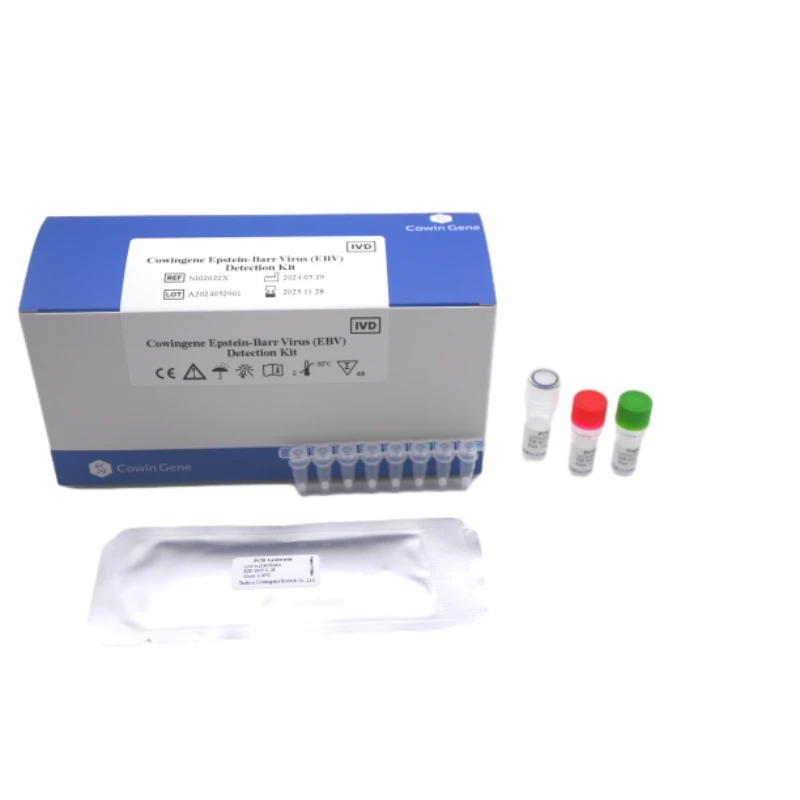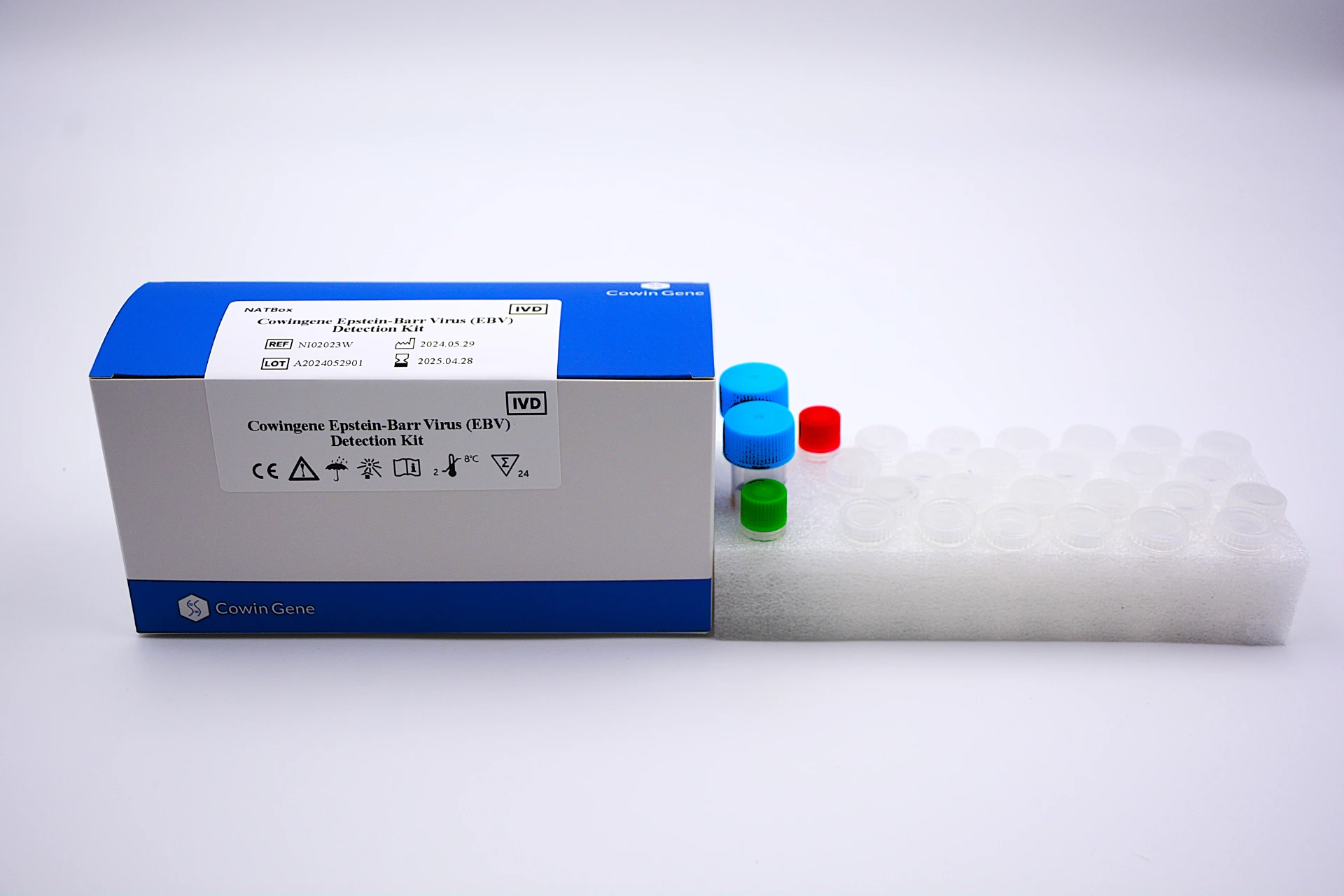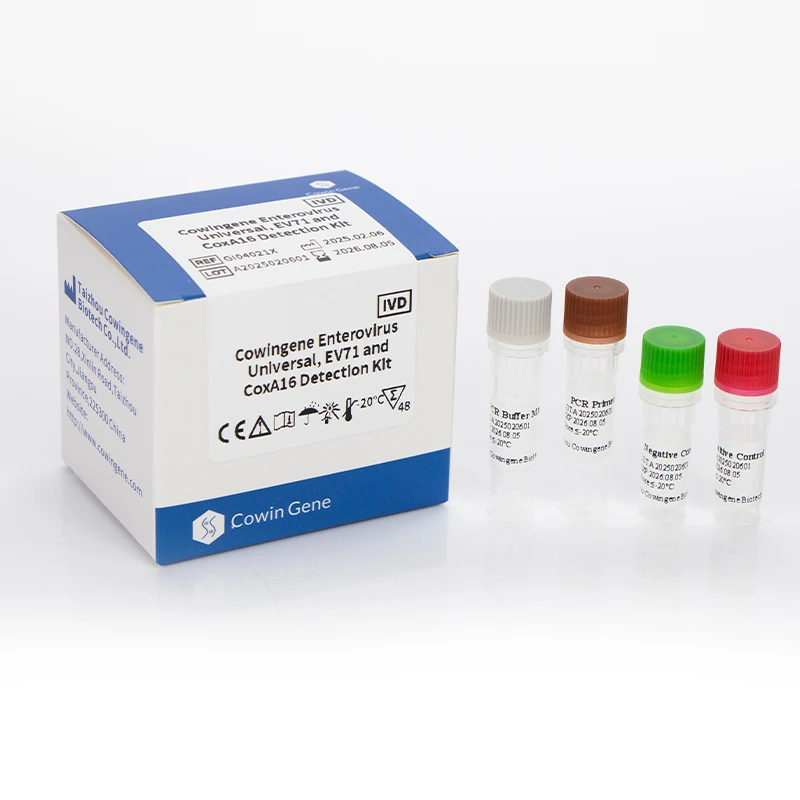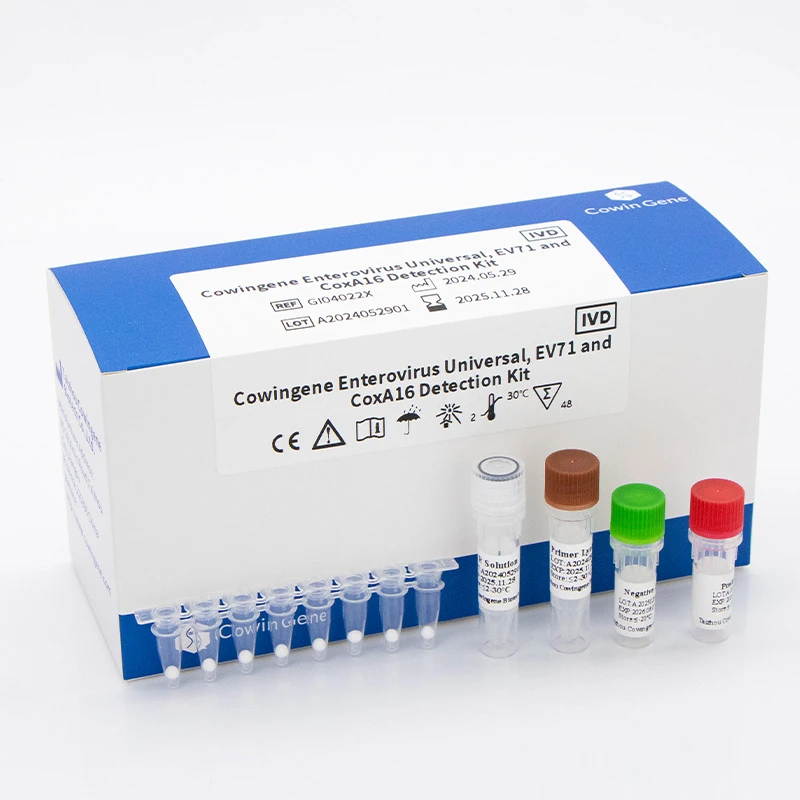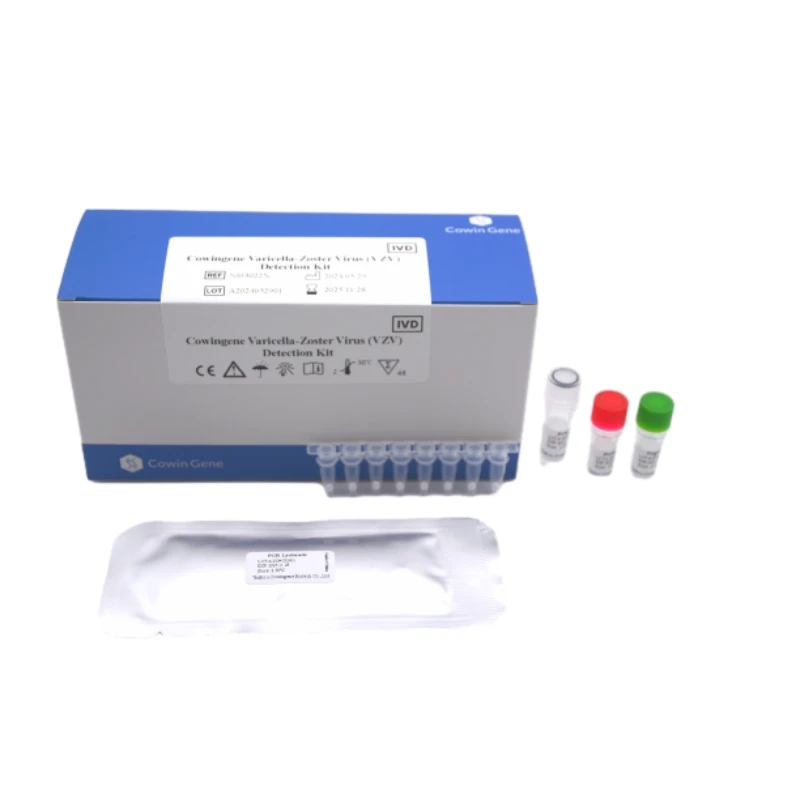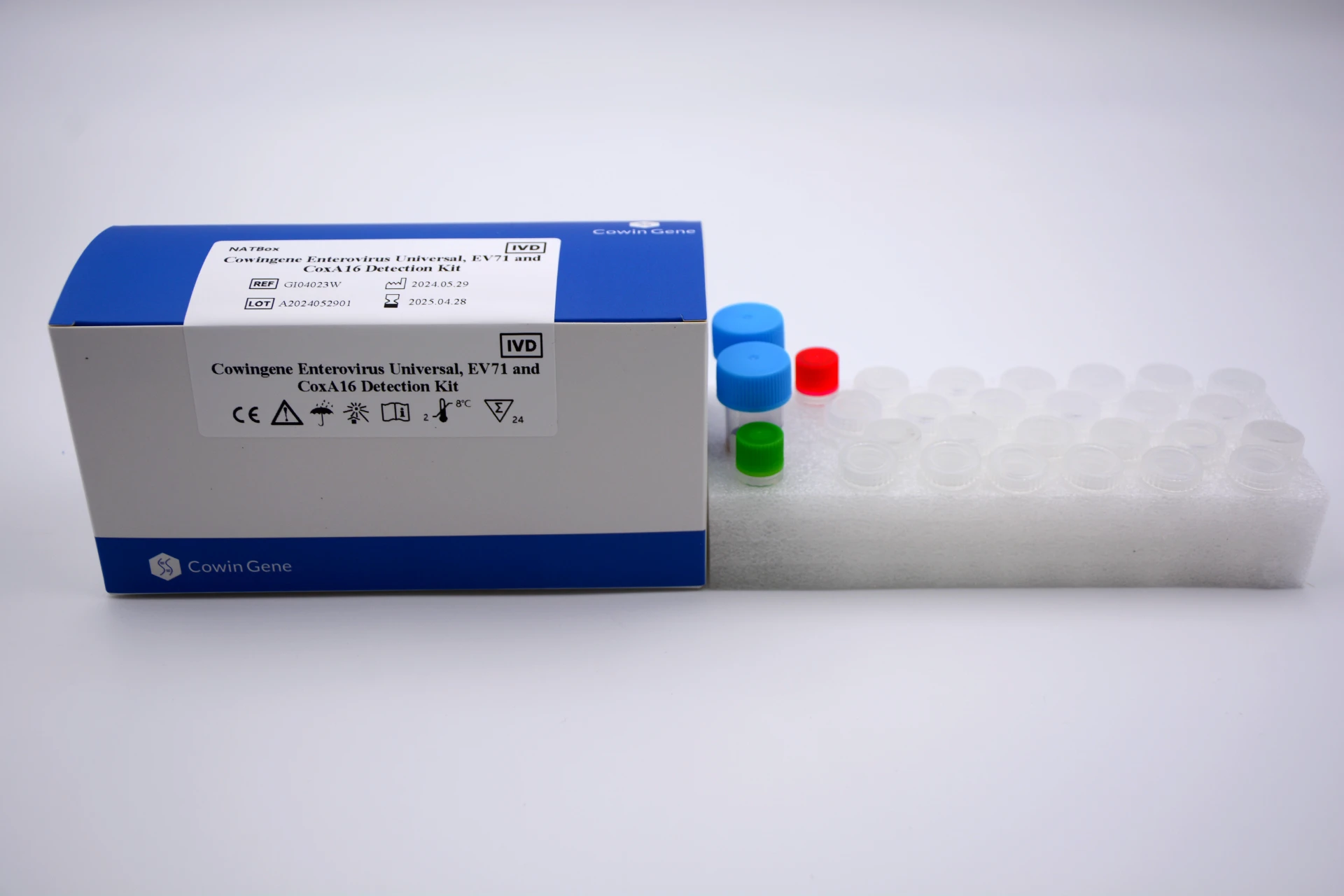Aug . 31, 2025 21:58 Back to list
RT PCR Zika and Associated Viral Detection Tools: Advancing Precision in Pathogen Identification
RT PCR Zika, or Reverse Transcription Polymerase Chain Reaction for Zika virus, stands as a gold-standard molecular technique for the sensitive and specific identification of Zika virus (ZIKV) in clinical samples. Unlike traditional serological methods that may cross-react with related flaviviruses, RT PCR Zika targets the unique RNA sequences of ZIKV, converting viral RNA into complementary DNA (cDNA) via reverse transcription before amplifying the target region. This two-step process ensures that even low viral loads—common in early infection stages or asymptomatic cases—are detected reliably, making RT PCR Zika indispensable for timely intervention and outbreak control. The technique’s high specificity minimizes false-positive results, a critical advantage in regions where ZIKV co-circulates with other arboviruses like dengue (DENV) and chikungunya (CHIKV).
RT PCR Zika Virus builds on the core principles of RT PCR Zika, with optimized protocols tailored to the genetic characteristics of Zika virus
Zika virus, an RNA virus belonging to the Flaviviridae family, has a single-stranded genome that requires careful handling to prevent degradation; RT PCR Zika Virus protocols often include RNA stabilization reagents in sample processing to preserve viral genetic material. Additionally, RT PCR Zika Virus assays typically incorporate internal controls to monitor the efficiency of reverse transcription and PCR amplification, ensuring that any inhibition from sample components (such as hemoglobin in serum) is identified and addressed. This level of quality control makes RT PCR Zika Virus a trusted tool in both clinical settings—for diagnosing individual cases—and public health surveillance—for tracking ZIKV spread in endemic areas.
Zika Test Kit integrates RT PCR Zika technology into a user-friendly, standardized format, streamlining the detection process for laboratories with varying levels of expertise
Most Zika Test Kit systems include pre-prepared reaction mixes containing reverse transcriptase, DNA polymerase, primers, probes, and buffer components, reducing the risk of human error during reagent preparation. The kit’s design often supports multiplexing, allowing simultaneous detection of ZIKV alongside other co-circulating viruses like DENV, which is crucial in regions where differential diagnosis is challenging. Zika Test Kit also typically includes clear workflow guidelines, from sample lysis to result interpretation, ensuring consistency across tests and enabling rapid turnaround times—often within 2–4 hours—for critical clinical decisions.
Chikungunya Test Kit, similar in design to Zika Test Kit but targeted at Chikungunya virus (CHIKV), leverages molecular techniques to detect CHIKV RNA in clinical samples like serum or plasma
While CHIKV is an alphavirus (distinct from the flavivirus family that includes ZIKV), Chikungunya Test Kit often uses RT PCR-based methods, aligning with the sensitivity and specificity of RT PCR Zika. Many Chikungunya Test Kit products are optimized for use in resource-limited settings, with lyophilized (freeze-dried) reagents that require minimal cold-chain storage, expanding access to testing in regions where CHIKV outbreaks are prevalent. Like Zika Test Kit, Chikungunya Test Kit may include internal amplification controls to validate results, ensuring that negative outcomes are not due to sample degradation or assay failure.
PCR for Chikungunya, specifically RT PCR for Chikungunya (given the virus’s RNA nature), complements Chikungunya Test Kit by providing a flexible, customizable approach to CHIKV detection
Unlike pre-packaged kits, PCR for Chikungunya allows laboratories to adjust primers and probes to target specific regions of the CHIKV genome—useful for monitoring genetic mutations or tracking viral lineages during outbreaks. PCR for Chikungunya also offers high scalability, enabling high-throughput testing during large-scale outbreaks, such as those in Southeast Asia or the Caribbean. When combined with RT PCR Zika, PCR for Chikungunya forms a comprehensive diagnostic panel for arboviruses, supporting clinicians in distinguishing between CHIKV and ZIKV infections, which present with similar symptoms like fever, joint pain, and rash.
The DENV/ZIKV/CHIKV Detection Kit is an in vitro diagnostic tool that integrates RT PCR Zika, PCR for Chikungunya, and DENV detection into a single assay, addressing the challenge of co-circulating arboviruses
By amplifying target RNA of DENV, ZIKV, and CHIKV in one analysis, this kit eliminates the need for multiple separate tests, reducing sample volume requirements and laboratory workload. The kit’s multiplex design uses distinct fluorescent probes for each virus, enabling simultaneous identification of one or more pathogens in a single sample—critical for patients with co-infections, which can complicate clinical management. Like standalone Zika Test Kit and Chikungunya Test Kit, this multiplex kit includes quality controls to ensure reliability, making it a valuable asset in both clinical diagnostics and public health surveillance.
In summary, RT PCR Zika serves as the cornerstone for ZIKV detection, with its high sensitivity and specificity setting the standard for molecular diagnostics of this arbovirus. RT PCR Zika Virus refines this technique for ZIKV’s unique genetic profile, while Zika Test Kit and Chikungunya Test Kit translate these molecular methods into accessible, standardized tools for laboratories worldwide. PCR for Chikungunya complements these kits by offering flexibility for custom or high-throughput testing, and the DENV/ZIKV/CHIKV Detection Kit addresses the practical need for simultaneous detection of co-circulating viruses. Together, these tools have transformed arbovirus diagnostics, reducing diagnostic uncertainty, supporting timely clinical care, and enhancing public health efforts to control outbreaks. As viral evolution and global mobility continue to shape arbovirus spread, further advancements in these technologies—such as improved point-of-care RT PCR Zika assays—will be key to expanding access to accurate detection, particularly in resource-limited regions.
Rt PCR Zika FAQs
1. What is the primary application of the DENV/ZIKV/CHIKV Detection Kit?
The DENV/ZIKV/CHIKV Detection Kit is designed for the qualitative detection of dengue virus (DENV), zika virus (ZIKV), and chikungunya virus (CHIKV) RNA in human serum samples. It is intended for use as an aid in the diagnosis of infection in conjunction with other clinical and epidemiological data.
2. How does the DENV/ZIKV/CHIKV Detection Kit utilize RT-PCR technology?
This kit employs reverse transcription polymerase chain reaction (RT-PCR) to amplify and detect specific RNA sequences of DENV, ZIKV, and CHIKV. The process involves converting viral RNA into complementary DNA (cDNA) followed by enzymatic amplification of target regions for highly sensitive identification in a single multiplex reaction.
3. What sample type is required for the DENV/ZIKV/CHIKV Detection Kit?
The test is specifically validated for use with human serum samples. Proper collection and handling of serum specimens are critical for maintaining RNA stability and ensuring accurate detection of DENV, ZIKV, and CHIKV nucleic acids.
4. What makes the DENV/ZIKV/CHIKV Detection Kit efficient for differential diagnosis?
This multiplex RT-PCR assay allows simultaneous detection and differentiation of DENV, ZIKV, and CHIKV in a single test tube. This streamlined approach saves time, reduces reagent costs, and provides comprehensive results for these clinically similar febrile illnesses.
5. How does the DENV/ZIKV/CHIKV Detection Kit ensure specificity?
The kit incorporates carefully designed primers and probes that target highly conserved genomic regions of each virus. Extensive analytical specificity testing demonstrates no cross-reactivity with other flaviviruses or common respiratory pathogens, ensuring reliable discrimination between DENV, ZIKV, and CHIKV infections.
Related PRODUCTS
-
Norovirus Detection Kit - Rapid, Accurate, CE-Marked
NewsNov.17,2025 -
DNA Extraction Kit | Fast, High-Yield, PCR-Ready Purity
NewsNov.17,2025 -
Human Papilloma Virus HPV PCR: Fast, Sensitive, Accurate
NewsNov.17,2025 -
Arbovirus PCR Test - Rapid, Accurate, Multiplex Detection
NewsNov.17,2025 -
Respiratory Panel Test for Fast, Accurate PCR Diagnosis
NewsNov.17,2025 -
Respiratory Panel Test for Rapid, Accurate PCR Diagnosis
NewsNov.04,2025


